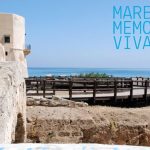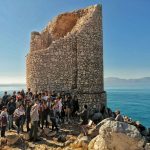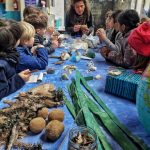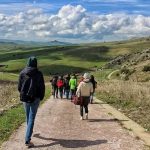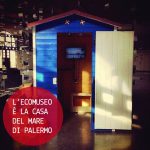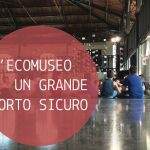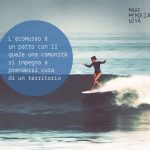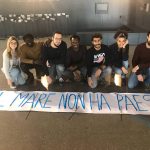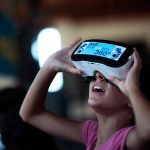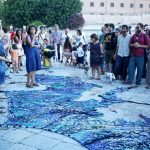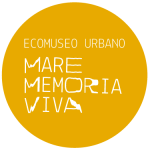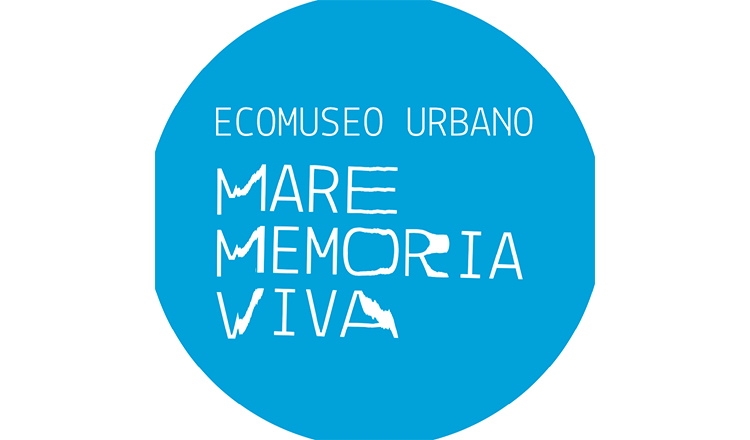
Ecomuseo Urbano Mare Memoria Viva
marEDU’/Ponte di Mare
The Ecomuseum Mare Memoria Viva is a community and cultural space, created with the inhabitants of the maritime small villages around Palermo, hosting a collective audiovisual and multimedia collection of stories, memories, photos and videos: there are stories about life, resistance, journeys, holidays, work, mafia and abuses; there are memories, faded photos, forgotten places, works of artists, today’s images, fairy tales, maps and visions of the future. And there is above all the town of Palermo, as seen and narrated by its inhabitants, because the relationship with the sea, denied and then rediscovered, tells much about the town that was, that is and that could still be. By investigating the link between places and people through research and artistic practices, the museum works on the sense of community and supports active citizenship and local development based on culture. The ecomuseum proposes non formal cultural and educational activities, urban explorations, workshops, exhibitions, conferences and public meetings on themes of general interest, such as citizenship, art, education, sea sciences, migrations, environment, placemaking.
marEDU’ is the educational department of the ecomuseum: through the visits, the labs, the activities inside and outside the museum, students and teachers, adults and kids are working together on the “reading of the territory”, public history, the urban and social changes in the town, starting from building lots, human rights and the value of common goods and civic participation. The ecomuseum proposes non formal educational activities for schools that change from year to year and that may be discussed and adapted to the needs of the teachers, children and younger visitors. The education to the tangible and intangible heritage is at the centre of our efforts directed to developing a sense of active citizenship, awareness of rights and critical thinking about the town. Applied tools and languages include the narrative, the Socratic method (maieutics or RMA), arts and the new technologies.
- Schools: The ecomuseum proposes educational activities and visits for schools that change from year to year and that may be discussed and adapted to the needs of the teachers, children and younger visitors.
- Projects: Schoolmaking-placemaking– The Ecomuseum develops educational projects in partnership with schools, the university, and the third sector. The Ecomuseum’s team offers consultancy and design services to the educational establishments and cultural organisations for the conception, writing and fund-raising of educational projects. Based on shared knowledge and experiences of cultural workers and taking into account original themes proposed by the ecomuseum, educational projects are developed together with headmasters, teachers and project managers, and incorporated in the training plan using National Operating Programme funds or other regional and national financing instruments, or special projects of diffuse territorial education are developed.
- Actions to combat educational poverty: the MMV ecomuseum is a participatory, hard-working, collaborative entity. It is a laboratory for new narration practices and buildup of collective experience, educational design, in which to share relationships and needs; it may actually play a crucial role to provide an alternative option, a socially inclusive welfare area, an opportunity to make cultural experiences in a broad sense.
- Cultural participation: at week-ends and on public holidays the ecomuseum promotes and hosts activities for families, labs, meetings, workshops and seminars. A “neighborhood house of the sea” where adults and children can spend their free time together.
Ponte di mare is a project of Urban Museum “Mare Memoria Viva”, successful candidate in the Open Competition “Prendi Parte! Agire e pensare creativo” (Take part! Creative acting and thinking) conceived by the Directorate-General for Architecture, Contemporary Arts and Peri-urban areas (DGAAP) of the Ministry for Cultural Heritage and Activities to promote the cultural inclusion of youth in the areas characterized by economic and social marginalization. The project is intended to involve the Italian and foreign young people who are not in education, employment or training (NEET), starting with those residing in the second district of Palermo Municipality, in two creative programmes lasting seven months and involving co-creation, RMA dialogues, crafts and design workshops, design and self-construction, game and reflection activities resulting in the creation of a collective artwork and of a new merchandising line of the Ecomuseum.
Information
Name of the Ecomuseum: Ecomuseo Urbano Mare Memoria Viva
Geographical location: Italy, Sicily region, Palermo
Year of establishment: 2014
Network : n/a.
Website: www.marememoriaviva.it

